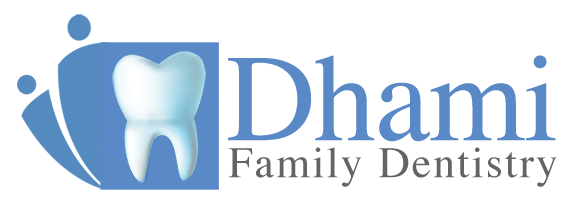Preventive Dental Care
- Licensed Dentist - Member of the American Dental Association- Over 25 Years of Experience
Arrest Tooth Decay with Preventive Dentistry
At Dhami Family Dentistry, we provide preventive dental care. Preventive dentistry is the area of dentistry that focuses on those procedures and life practices that help people to prevent the beginning or progression of oral disease.
It includes at-home dental care performed by patients, as well as dental care and education by professional dental staff in the office or clinic. If you need preventive dental care, get in touch with us
today.
Benefits of Preventive Dentistry
Preventive dentistry includes two aspects of dental care, both performed to help patients avoid dental disease or to catch it in its early, more treatable stages. In part, it is the oral hygiene care performed by the patient at home.
Preventive dentistry also encompasses what is done by the dental staff in their offices to help patients maintain healthy teeth and gums. In either case, the objective is to stop the development of oral disease or to find it at an early stage.
Dental health professionals most often look for early signs of periodontal disease, dental decay, and other changes in the soft tissue of the mouth that could lead to oral cancer.
Preventive care in a dental office includes prophylaxis, or the cleaning of the teeth, which removes accumulations of calculus. It includes an examination of the teeth and soft tissue, using visual and tactile exams, radiographic examination such as x-rays, and oral cancer screening.
Preventive procedures often performed by dentists for children include the use of fluoride supplements and applications.
Dentists apply dental sealants to children's teeth, forming a barrier between tooth crevasses and bacteria to help ward off dental decay. Dental health professionals also look for malocclusions and might refer patients to a dental specialist such as an orthodontist to correct a patient's bad bite.
Preventive dental care should begin in infancy, within the first year of life before teeth first appear, and continue throughout the patient's life. Even before teeth erupt, parents can clean infants' gums after feeding.
Preventive care in adolescence includes brushing and flossing, as well as wearing custom-made mouthguards to protect the teeth during contact sports. Considering that 75% of Americans have some form of dental disease, regular dental visits are particularly important for adults.
Seniors often benefit from training in proper techniques of denture care and cleaning, which include brushing the replacement teeth.
Health Care Team Roles
The dentist oversees the process of examination, diagnosis, treatment planning, and education. The allied dental personnel include the dental hygienist and dental assistant. Dental hygienists sometimes perform preventive techniques, including cleaning, fluoride and sealant application, and patient education.
The dental assistant in some states, depending on state licensing, can perform many of the same procedures as the hygienist, assist the dentist during checkups, and provide patient guidance and education
